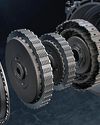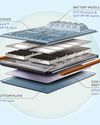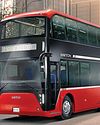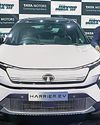Intentar ORO - Gratis
Sales rev up as OEMs prepare for festive season
Autocar Professional
|1st September 2022
The July 2022 wholesale numbers for three segments — passenger vehicles, three- and two-wheelers — released by SIAM suggest a good momentum in PV and two-wheeler sales. Ajit Dalvi does the number crunching.
-

India’s automotive sector recorded total sales of 17,06,545 units translating into a 10.61 percent year-on-year increase (July 2021: 15,42,716). While this augurs well for the industry per se and also reflects strong passenger vehicle (PV) and two-wheeler demand for new models, July numbers also indicate that OEMs are gearing up for the festive season ahead when new vehicle purchases are the order of the day.
July, which is typically a lean month for new buys, can be seen to be a month when vehicle manufacturers ramp up deliveries to their showrooms and dealers across the country, to ensure speedy model availability to customers. The PV segment, which is seeing players like Maruti Suzuki and Mahindra having sizeable waiting periods for their popular models, saw total despatches of 293,865 units, up 11 percent (July 2021: 264,442). The 16-OEM total would have easily crossed the 300,000-unit mark if it weren't for the fact that Tata Motors does not provide its monthly wholesale numbers to SIAM.
Of the total sales, cars comprised 143,522 units or 49 percent while SUVs with 137,104 units had a 46 percent share, and vans with 13,239 units took 4.50 percent of the share. Clearly, the supply-demand mismatch in SUVs is evident in the segment’s reduced share, considering for the past year, every second PV sold in India is an SUV. Nonetheless, all three sub-segments — cars (10 percent), UVs (11 percent and vans (28 percent) — saw YoY growth.
Esta historia es de la edición 1st September 2022 de Autocar Professional.
Suscríbete a Magzter GOLD para acceder a miles de historias premium seleccionadas y a más de 9000 revistas y periódicos.
¿Ya eres suscriptor? Iniciar sesión
MÁS HISTORIAS DE Autocar Professional

Autocar Professional
Spain's Fersa Group invests in India-based Delux Bearings
Besides theRs100 croreinvestment, the Indian company gets access toadvanced technologies and bearings with arange of applications that willhelpinits global growth strategy, writes Manobhava Baruah.
2 mins
15th January 2023

Autocar Professional
Tata Autocomp to open compact dual-clutch transmission plant
Amidthe country’s growing need for personal mobility with easy manoeuvrability, comes the demand for vehicles with automatic transmission. Tata AutoCompisready tomovein writes Shruti Mishra.
3 mins
15th January 2023

Autocar Professional
Pankaj Munjal-backed Hero Motors raises equity from GEF Cap
The company willinvest Rs1,500 crore over thenextthree years andit expects 60 percent ofits turnover to come fromelectric vehicle parts. Itaims to becomea Global EV Solutions Company from India
2 mins
15th January 2023

Autocar Professional
New age thermoplastics for next-generation EV batteries
Saudi-based global materials major SABIChas developed cutting edgein fire-resistant polymers and flame-retardant materials that comply with various EV battery safety standards across the world.
4 mins
15th January 2023

Autocar Professional
Switch Mobility to meet growing e-bus demand with fresh capex
Oncourse for abillion-dollar business, the company is exploringa possibility of operating satellite factories across the country to serve different geographies, write ShahkarAbidi and Ketan Thakkar.
4 mins
15th January 2023

Autocar Professional
Kia India to invest Rs 2,000 crore in EVS, to introduce new e-RV in 2025
New investmentto drive R&D, infrastructure development and manufacturing capabilities. The company willlocally produce EVsin India with possibility of exports as well, writes Mayank Dhingra.
2 mins
15th January 2023

Autocar Professional
"The government has given enough time for indigenisation but the industry has not taken it seriously"
Amitabh Saran, Founder and CEO, Altigreen, shares his views on problems inthe EV industry and battery localisation solutions with Amit Vijay M.
3 mins
15th January 2023

Autocar Professional
TATA MOTORS SEES ONE INTWO CARS SOLDAS EVS BY 2030
The company aims to offer wider choices withnew EVs that may straddle a pricebracket of Rs20to 40lakhinthe coming years, writes Ketan Thakkar.
2 mins
15th January 2023

Autocar Professional
MG Motor India in expansion drive, to invest $100 million
The investment willbe usedtoramp up existing production capacity from1.2to1.4-15lakh units per annum atthe automaker's Halol plantin Gujarat, writes Ketan Thakkar.
2 mins
15th January 2023

Autocar Professional
"Technology and its multiplier effect are driving business transformations and customer experiences"
Technical Centre India is one of Continental’s largest research and development centres in the world, andasa Centre of Competence’ it also develops customised products for the BRIC countries.
9 mins
15th January 2023
Translate
Change font size

